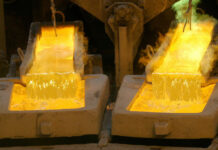
ROBERT Friedland, the billionaire founder of Ivanhoe Mines, has thrown his support behind US President Donald Trump’s controversial 50% tariff on copper imports, arguing they will strengthen America’s strategic position.
This is despite widespread industry scepticism about the policy’s economic impact, the Financial Times reported on Thursday.
The 74-year-old mining executive dismissed concerns from analysts and fellow executives who questioned the wisdom of such steep levies given America’s heavy reliance on foreign copper supplies.
Speaking to the Financial Times, Friedland characterised the tariff as necessary to highlight dangerous supply chain vulnerabilities. He argued that access to critical raw materials underpins both climate initiatives and national defence capabilities.
Markets have already begun adjusting to the anticipated policy changes, with American copper prices climbing to $5.53 per pound—creating a substantial 28% gap above London’s international benchmark rates, said the newspaper.
The mining magnate brushed aside immediate market volatility, instead focusing on longer-term strategic benefits. He suggested copper serves as a blueprint for addressing import dependencies across roughly 30 essential metals.
Trump’s administration has actively promoted domestic mining expansion, with Interior Secretary Doug Burgum encouraging companies to accelerate production through his “mine, baby, mine” initiative.
Regulatory changes have already begun benefiting major projects, including Rio Tinto’s long-stalled Resolution copper development in Arizona. Friedland’s Ivanhoe Electric similarly plans to advance its Santa Cruz copper venture in the same state, said the Financial Times.
The entrepreneur praised current government attitudes toward mining as refreshingly supportive after decades of regulatory hostility. He emphasised how the shift from globalised supply chains toward domestic security reflects preparations for potential military conflicts requiring substantial raw material stockpiles.










